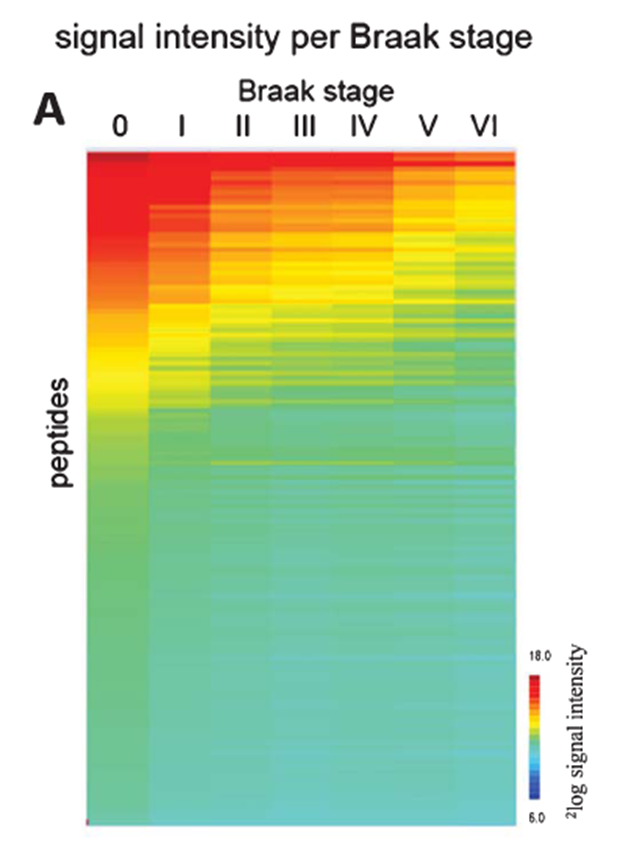Researchers from the Neuroscience Campus, VU University Medical Center, Amsterdam, The Netherlands have discovered that protein kinase activity decreases with progression of Alzheimer’s Disease (AD) Pathology and is evident early on, at pre-clinical stages.

Protein kinase activity was determined in postmortem hippocampal brain tissue of 60 patients at various stages of AD and 40 non-demented controls (Braak stages 0-VI) using PamGene’s peptide-based microarray platform. An overall decrease of protein kinase activity correlated with disease progression, with phosphorylation of 96.7% of the serine/threonine peptides and 37.5% of the tyrosine peptides on the microarray decreasing significantly with increased Braak stage. Kinase and Pathway analysis revealed interactions between well-known proteins in AD pathology, including the Ephrin-receptor A1 (EphA1), a risk gene for AD, and sarcoma tyrosine kinase (Src), which is involved in memory formation. Additionally, kinases not previously associated with AD were identified, e.g., protein tyrosine kinase 6 (PTK6/BRK), feline sarcoma oncogene kinase (FES), and fyn-associated tyrosine kinase (FRK). The identified protein kinases are new biomarkers and potential drug targets for early (pre-clinical) intervention.

Protein Kinase Activity Decreases with Higher Braak Stages of Alzheimer’s Disease Pathology.
Rosenberger AF, Hilhorst R, Coart E, García Barrado L, Naji F, Rozemuller AJ, van der Flier WM, Scheltens P, Hoozemans JJ, van der Vies SM. (2015) J Alzheimers Dis. Oct 27. [Epub ahead of print]
Andrea Rosenberger
a.rosenberger@vumc.nl

